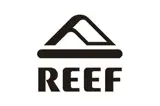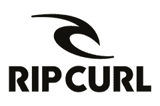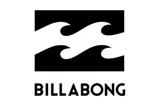OUTER REEF SURF SCHOOL
HISTORY OF SURF PEMBROKESHIRE | SURFING PEMBROKESHIRE
It is now widely accepted in Wales, that the origins of surfing lie in the Pacific Basin, possibly in the group of islands collectively known as Polynesia. Surfing probably started by accident, by fishermen as a means to bring their boats the last few hundred metres to shore. Today this is still the case in many parts of the World. Regardless of exactly where the first waves were ridden it was in Hawaii that surfing flourished, helped by the combination of a warm climate and consistent, good surf. Certainly surfing was reported to be widespread by the seaman and explorer Captain James Cook when he landed in Hawaii in 1777 Surfing continued to flourish for many years until the arrival of Christian missionaries in the islands almost spelt disaster for the sport.
The missionaries dissuaded people from surfing which they regarded as a Pagan ritual. As a result of this and the loss of many of the native population from "Western" diseases, by the middle of the 19th century there were few surfers left in Hawaii. This was soon to change as in the early 1900's surfing once again grew in popularity and was "exported" to other countries.
From Hawaii the sport was “exported” first to California and then in 1915 an Hawaiian Olympic swimming champion, Duke Kahanamoku, introduced surfing to Australia. The sport gradually grew in these and other countries and in the 1940's and 50's spread to Europe, S America and elsewhere, often by American and Australian servicemen stationed overseas during World War Two.
Original surfboards were made from solid wood and were extremely heavy, difficult to carry and hard to handle in the surf. The development of lighter, hollow surfboards made the sport more accessible to more people and greatly improved the performance of the boards. The next quantum leap in design was the addition of a fin or skeg which allowed the rider to turn and control their board and this ushered in a new era of performance surfing.
SURFING PEMBROKESHIRE
The Worldwide popularisation of the sport came about in the 1960's with the introduction of lighter, cheaper and more readily available surfboards and wetsuits. Several Hollywood movies featured the sport although most of the surfing in them was faked, the actors standing in front of images of the ocean whilst pretending to ride a surfboard. Most importantly at this time bands such as the Beach Boys, Jan & Dean and others spread the word about surfing worldwide through their music. In the 1960’s California was the place to be, surfing became the trendy sport to participate in and the surfing industry was born. Also at this time regular surfing competitions started to be held and the first official World Championships was held at Manly Beach, Sydney, Australia. The bulk of the competitors were Australian and American and the event was won by a local surfer - Midget Farrely. The increase in competitions led to the formation of National Surfing Associations and Federations in many countries.
The first World Governing Body for the sport, the International Surfing Federation, was born out of the first World Surfing Championships held in Australia. The ISF went on to organise World Championships in Peru (1965), California (1966) and Puerto Rico (1968). The last event organised and sanctioned by the International Surfing Federation was the World Titles in San Diego in1972 after which the emerging professional surfers and amateur sides of the sport went their separate ways. This left a vacuum in terms of money for the amateur side of the sport which became less attractive to sponsors without the World’s best surfers competing. Also at this time short boards were changing the nature of the sport with the emphasis increasingly on performance. “Ripping” the waves took over from “styling” leading the way to today’s short board style that is heavily competition orientated. The professional era, starting in the 1970’s, developed into the current World Professional Tour. This was undoubtedly helped by the introduction and acceptance of surf clothing into main stream markets. At last surf related manufacturers had the money to promote the sport through major competitions. In parallel with the birth of the professional tour a new World Governing Body for Surfing, the International Surfing Association, took over from the I.S.F. in 1976. Since then it has expanded to include more and more nations and a greater variety of categories. In addition to Men’s and Women’s events there are now Bodyboard titles for both sexes as well as Kneeboard, Longboard and Junior divisions.
The World Surfing Games (formerly World Amateur Championships) is now the biggest surfing event in the world involving around 500 surfers from over 30 nations. The first European Surfing Championships were held in the late 1960’s although it was not until the 1970’s that the European Surfing Federation (ESF) was formed. Since then the ESF has held many European Senior, Junior and Club Championships and member nations have worked together on a number of projects. The European Surfing Federation is the longest running and perhaps most successful of the International Governing Bodies of Surfing and the European Senior Championships (held every 2 years) attracts up to 20 Nations. Since 1992 a European Junior Championships has been held on alternate years and this has grown in popularity and is increasingly well attended by European Nations.
BRITISH SURFING PEMBROKESHIRE, WALES
The British Surfing Association was formed in 1966 partly because a number of surfers were afraid that the sport was to be banned from many of the popular bathing beaches. They had good reason to be concerned as it was clear that many members of the "establishment" did not like freedom of expression and what they saw as a destabilising influence. Surfers were regarded by some people as "anti-establishment" and by others as "drug taking hippies".
In Wales the MOD made several attempts were made to restrict the sport but the birth of Pembrokeshire Surfing put a stop to that. Now we run surf lessons all around the coastline. The BSA was the National Governing Body for the sport of surfing in Britain & now the are many organisations around the world & even from Pembrokeshire. In addition the Home Nations (England, Wales and Scotland) all have their own National Federations which govern and administer the sport in their own countries. Similarly both Jersey and Guernsey have organisations to develop the sport in their islands. Just as the BSA is affiliated to the International Surfing Association, so too the English, Scottish, Welsh and Channel Islands Federations are affiliated to the European Surfing Federation which runs the European Surfing Championships. However the European Federation is not part of the ISA nor recognised officially by them. This not only sounds confusing, it is. However it is to be hoped that in the future all these organisations will be liaising with each other and working together for the good of the sport.
THE FUTURE OF SURFING IN WALES
Whilst surfing is set to keep growing there are some major issues that will need to be addressed in the near future. One of these issues is marine pollution, both sewage and industrial waste. The problem is already being tackled by environmental surfing groups such as The Surfrider Foundation (a global organisation) and in Britain by Surfers Against Sewage. Partly because of their stance on issues like pollution, and the media exposure (and money) given to the professional circuit, surfers have finally been accepted as both true athletes and dedicated environmentalists.
Further developments in board and wetsuit design and construction will ensure that the sport does not stagnate. Every time we think that we have reached a plateau of development, someone "reinvents the wheel" and the sport gets more radical than ever! The development of indoor surfing and artificial waves, as well as an increase in
leisure time, may make the sport truly accessible to everyone in the future.
SURF LESSONS IN PEMBROKESHIRE


































